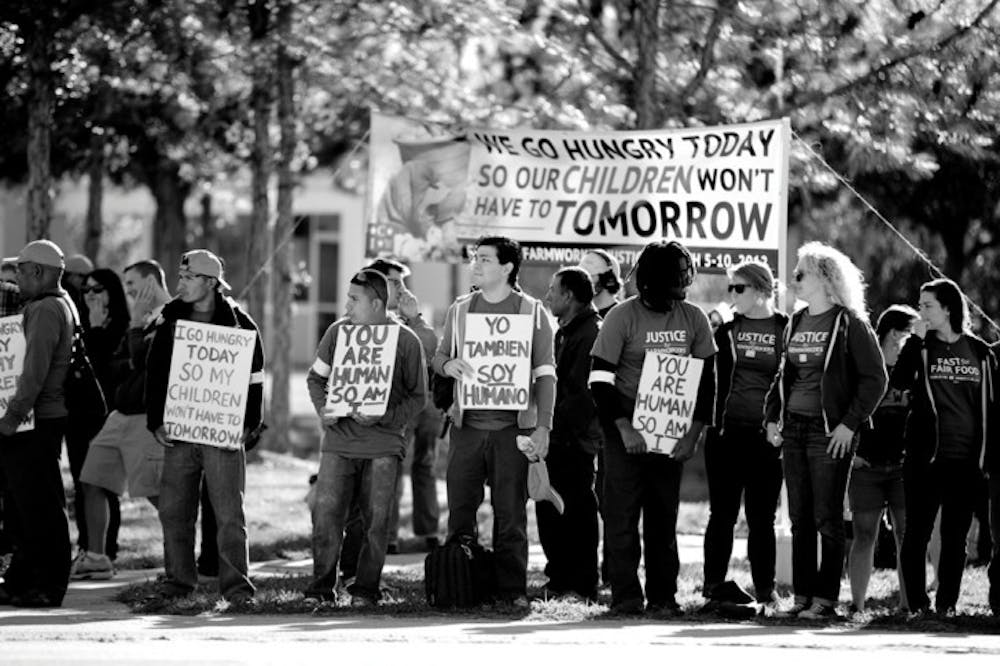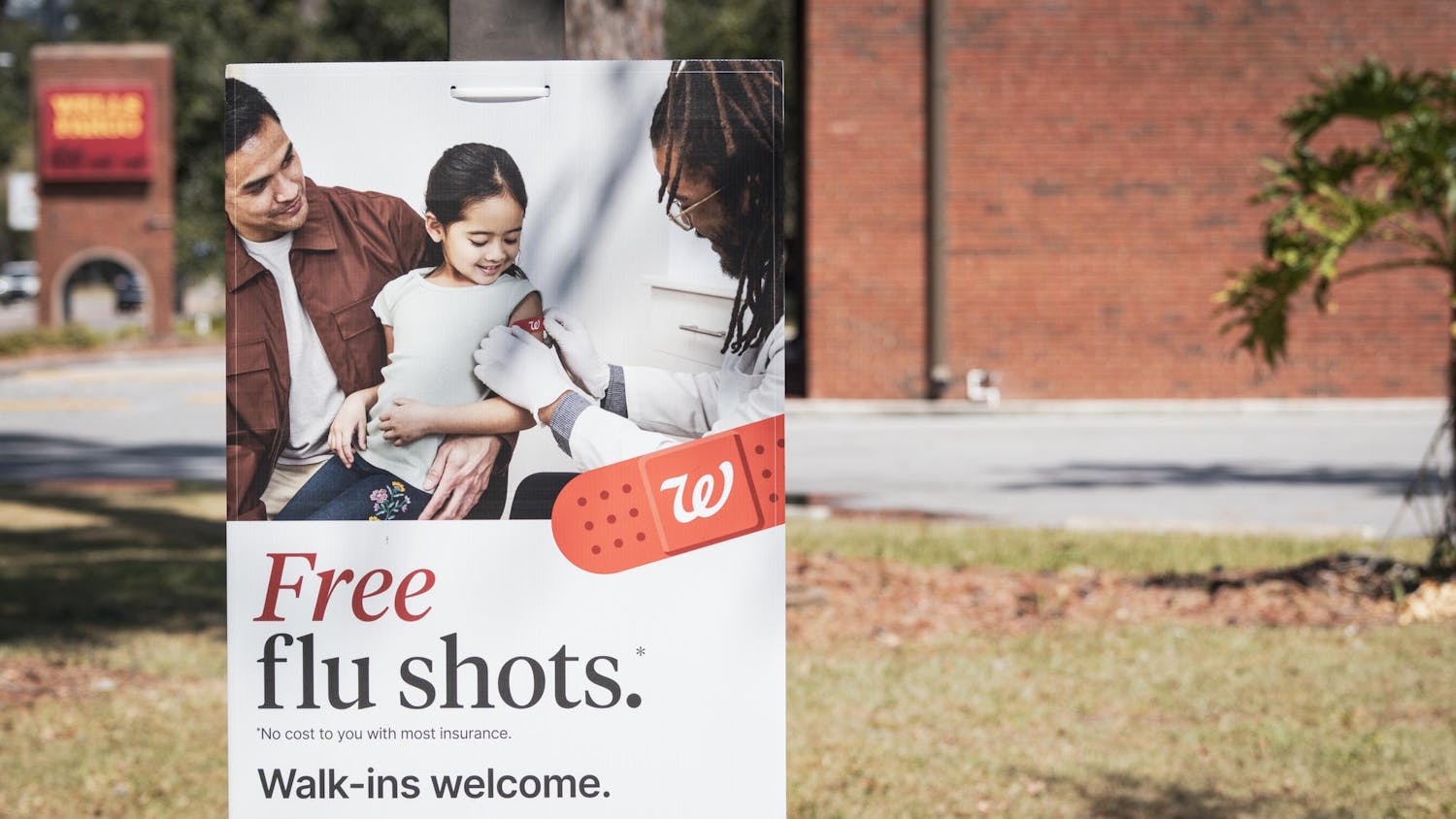UF students, migrant workers and other hungry protesters lined the sidewalk around the Publix headquarters in Lakeland from March 5 to 10 to persuade Publix to sign an agreement that would give tomato pickers fair wages.
The program, founded by the Coalition of Immokalee Workers, increases the wages of tomato farmers and supports a human rights-based code of conduct.
About 50 supporters fasted for six days to influence Publix to join the program. Supporters came from several organizations, including the Coalition of Immokalee Workers, the Student/Farmerworker Alliance, Interfaith Action of Southwest Florida and Just Harvest USA.
“We see this as a big step in the right direction,” said Joe Parker, co-coordinator of the Student/Farmerworker Alliance.
Farmers have faced poor wages, verbal and physical abuse, little access to food and water while working and, in extreme cases, slavery, Parker said.
“This is why this program is so important,” said farmer Leonel Perez. “Because of the verbal abuse, and [because] you cannot speak up for yourself. If you do, then you might not have a job the next day.”
The program raises the prices of tomatoes one penny per pound. This causes farmers to be paid more, allowing them to have more money to take care of their families.
Perez said farmers are paid about 50 cents for every 32-pound bucket of tomatoes they pick.
Perez said he has seen increases of $40 to $50 every week to his friend’s paychecks.
So far, 10 companies have signed on to participate in the initiative, called the Fair Food Program. But the largest corporation in Florida, Publix Super Markets, has yet to join.
Publix is a huge buyer in the tomato industry and has the opportunity to be an example, Parker said.
Publix’s Media and Community Relations Manager Dwaine Stevens said the reason for not participating in the Fair Food Program is it does not “intervene in labor disputes between suppliers and their employees.”
He said Publix is “more than willing” to pay more for the tomatoes but will not pay employees of other companies — referring to the tomato sellers — for their labor.
Parker said supporters of the program will continue to invite Publix to speak with protest leaders.
“This is no way to treat your neighbors, to not even talk to us,” Parker said. “This program is the future of the industry.”
Victor Yengle, a 23-year-old economics junior, holds a sign that reads, "Yo Tambien Soy Humano" while fasting at a protest for fair wages for tomato pickers.






